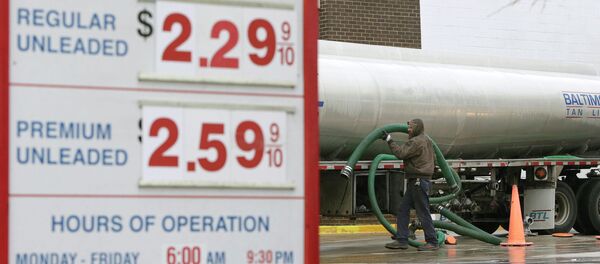"The Producer Price Index for final demand decreased 0.8 percent in January, seasonally adjusted," said the report issued on Wednesday.
Producer Price Index (PPI) program measures the average change over time in the selling prices received by domestic producers for their output.
Prices for diesel fuel, jet fuel, basic organic chemicals, dairy products and home heating all fell shorter, most notably gasoline falling 24 percent, according to the report.
Processed goods prices declined 2.8 percent and unprocessed goods 9.4 percent, the report said. Food prices fell 1.1 percent, transportation and housing declined by 0.8 percent, while energy experienced the largest decline of 10.3 percent, it added.
The falling prices could lead to a possible negative economic cycle, but can also bring many benefits as well, according to Peter Schiff, Chief Executive Officer of Euro Pacific Capital, a US broker-dealer company.
"While falling prices may strike the layman as cause for celebration, economists believe that it can kick off a nasty, and often inescapable, negative cycle, which many believe leads inevitably to a prolonged recession, or even a depression," Schiff commented on the situation in a blog post in January.
Since June, 2014 the global oil prices have fallen by more than 50 percent due to the market oversupply.
The average price for a gallon of gas dropped as low as $2.03 across the United States in January, according to AAA Daily Fuel Gauge Report.
Prices went up to $2.27 a gallon nationwide since then but still about $1.10 below where they were a year ago, the AAA said.




